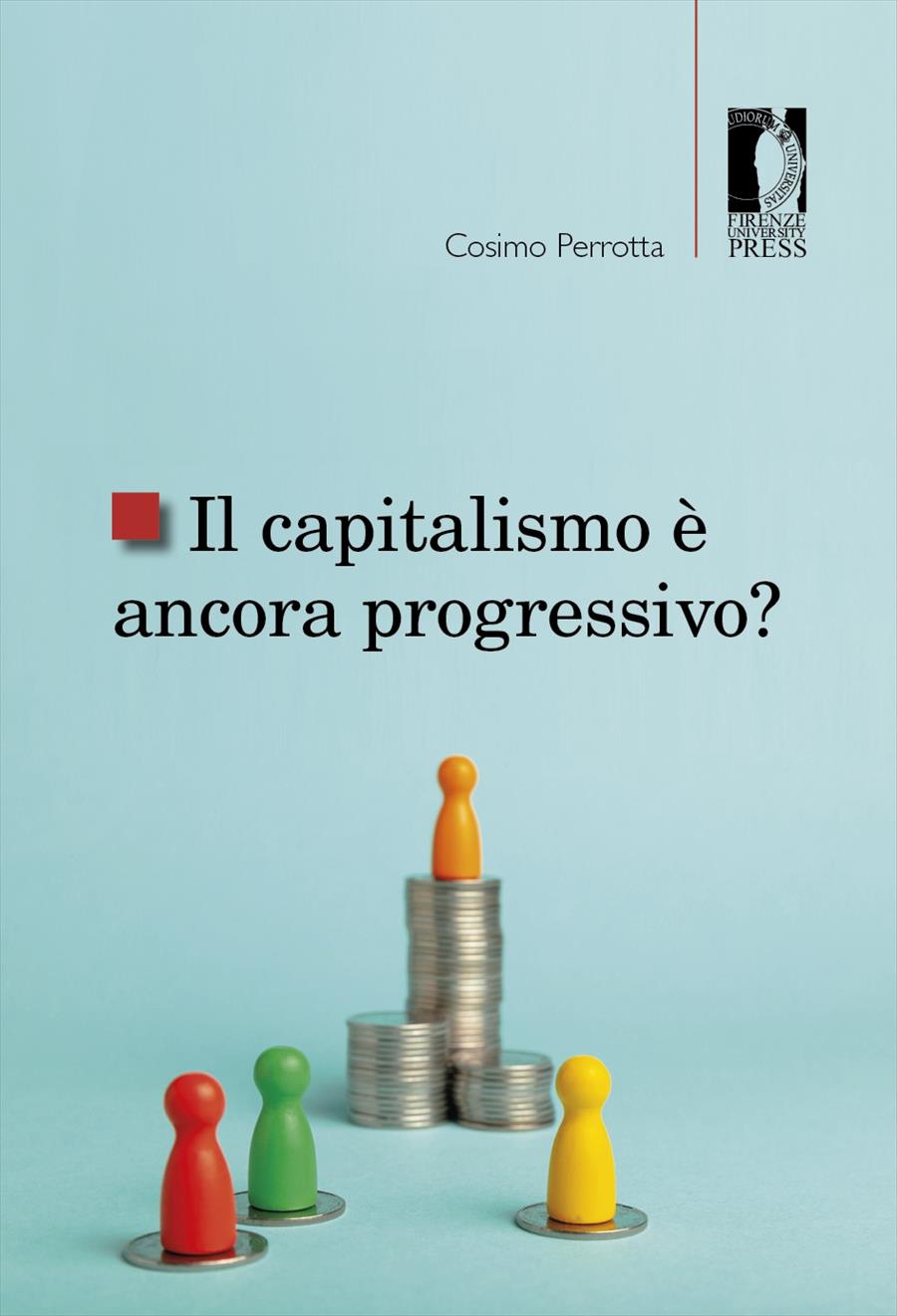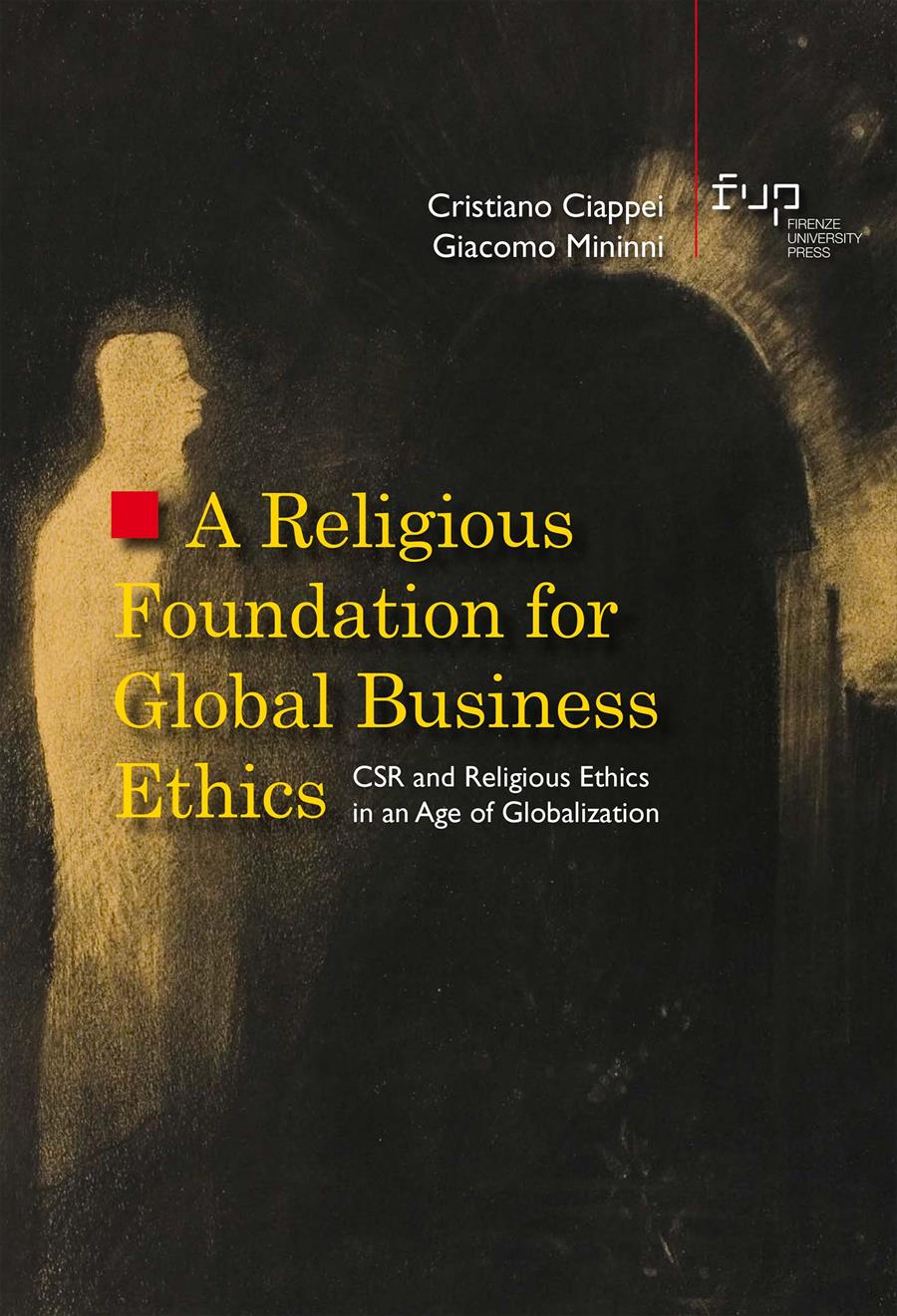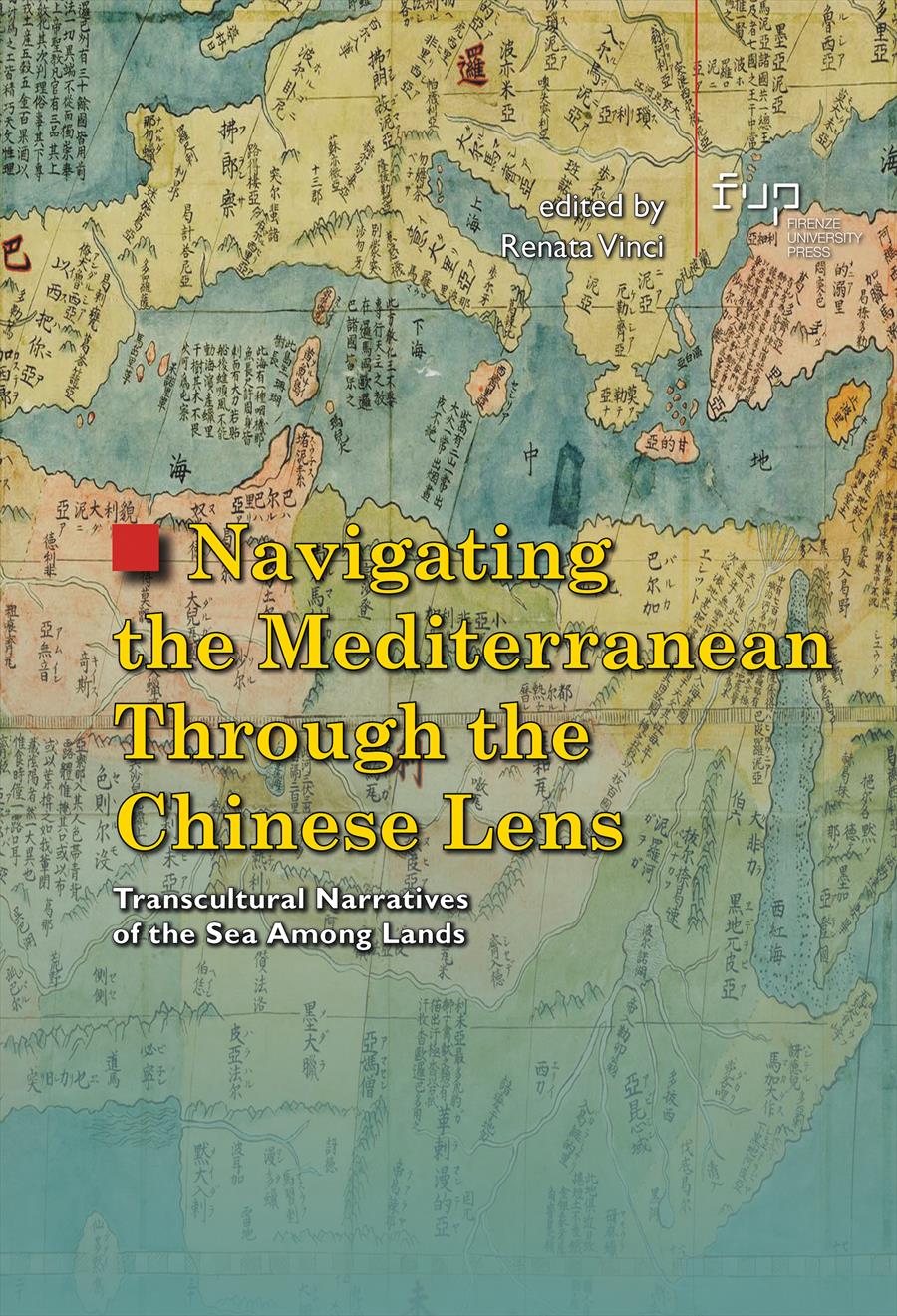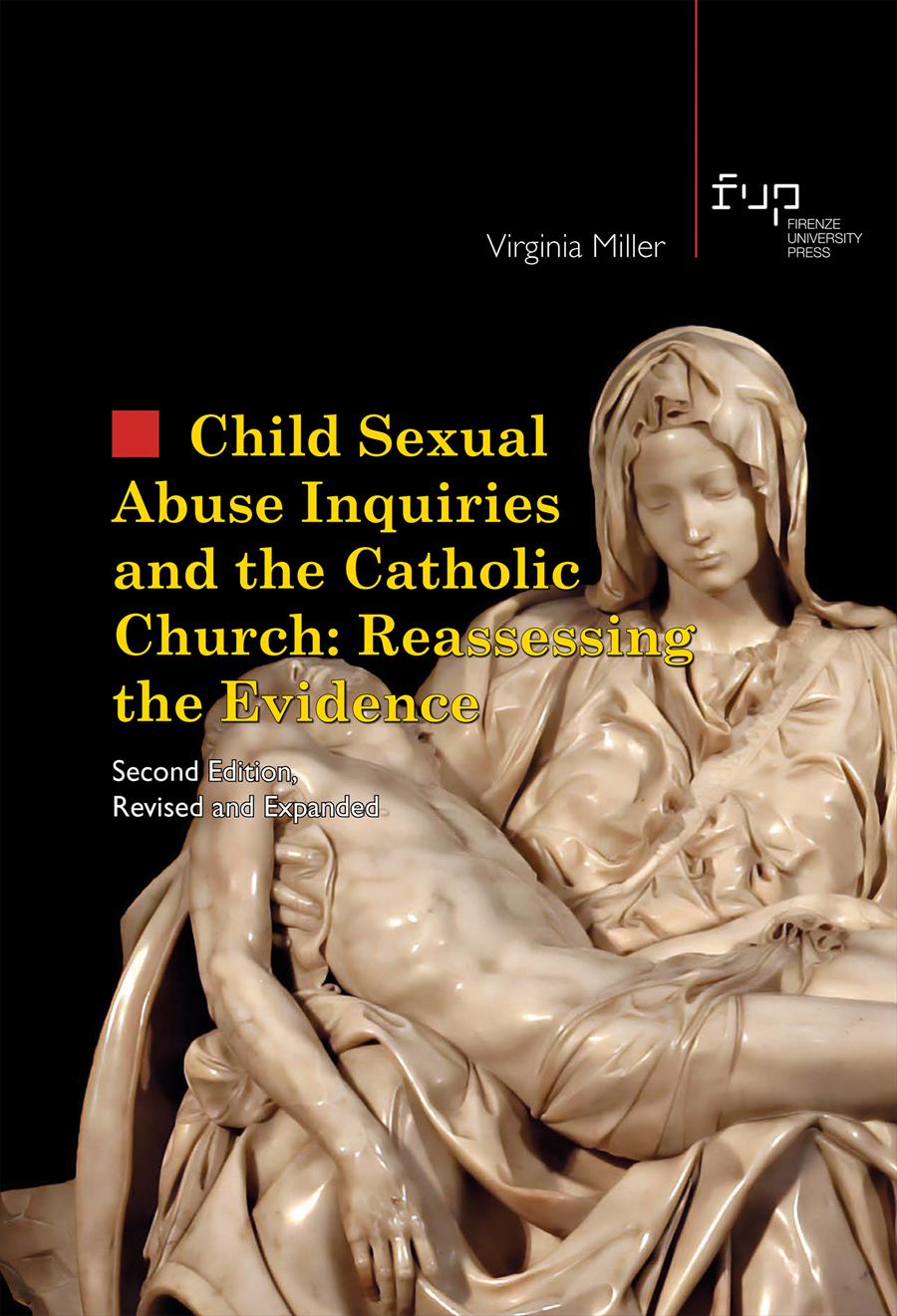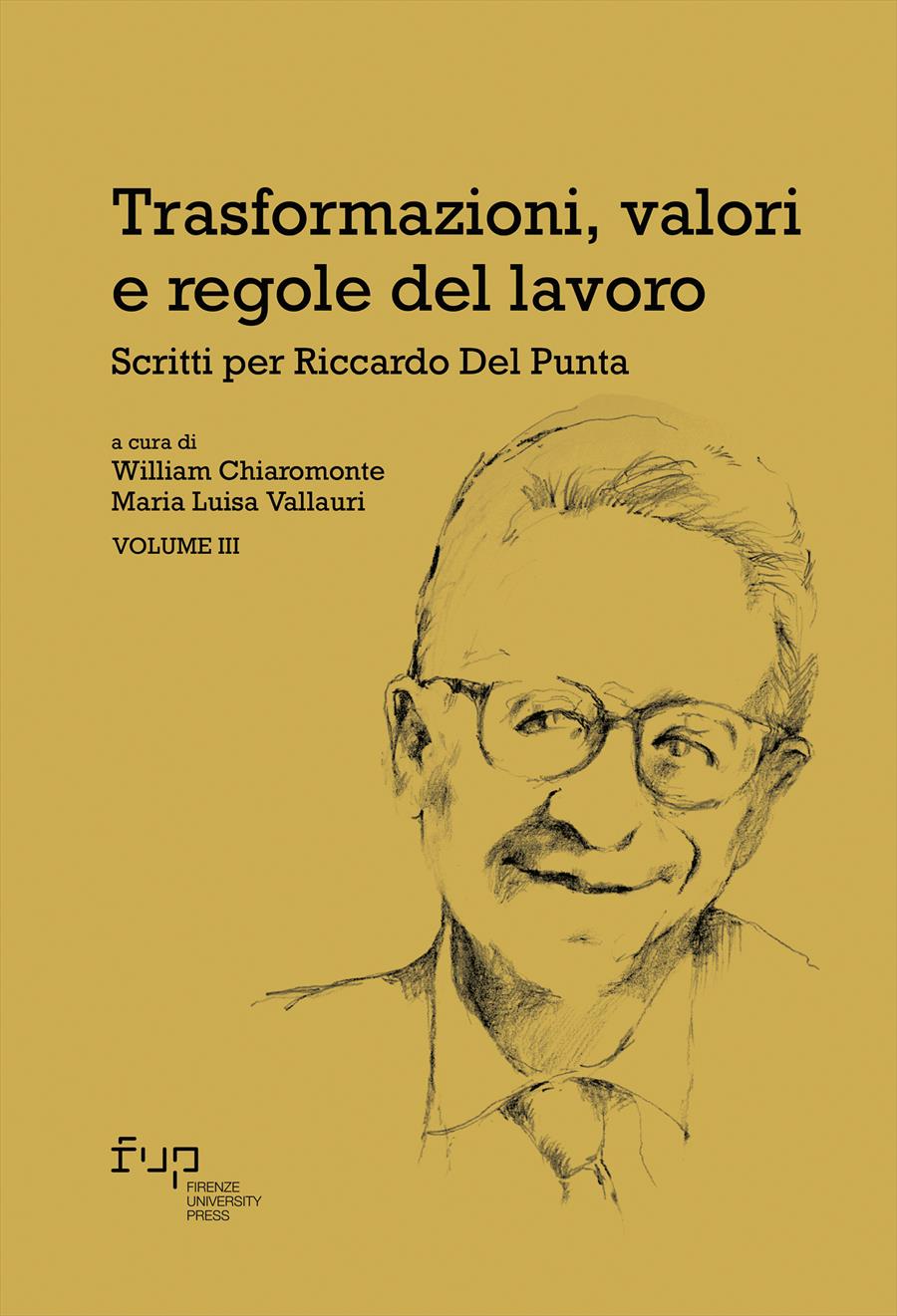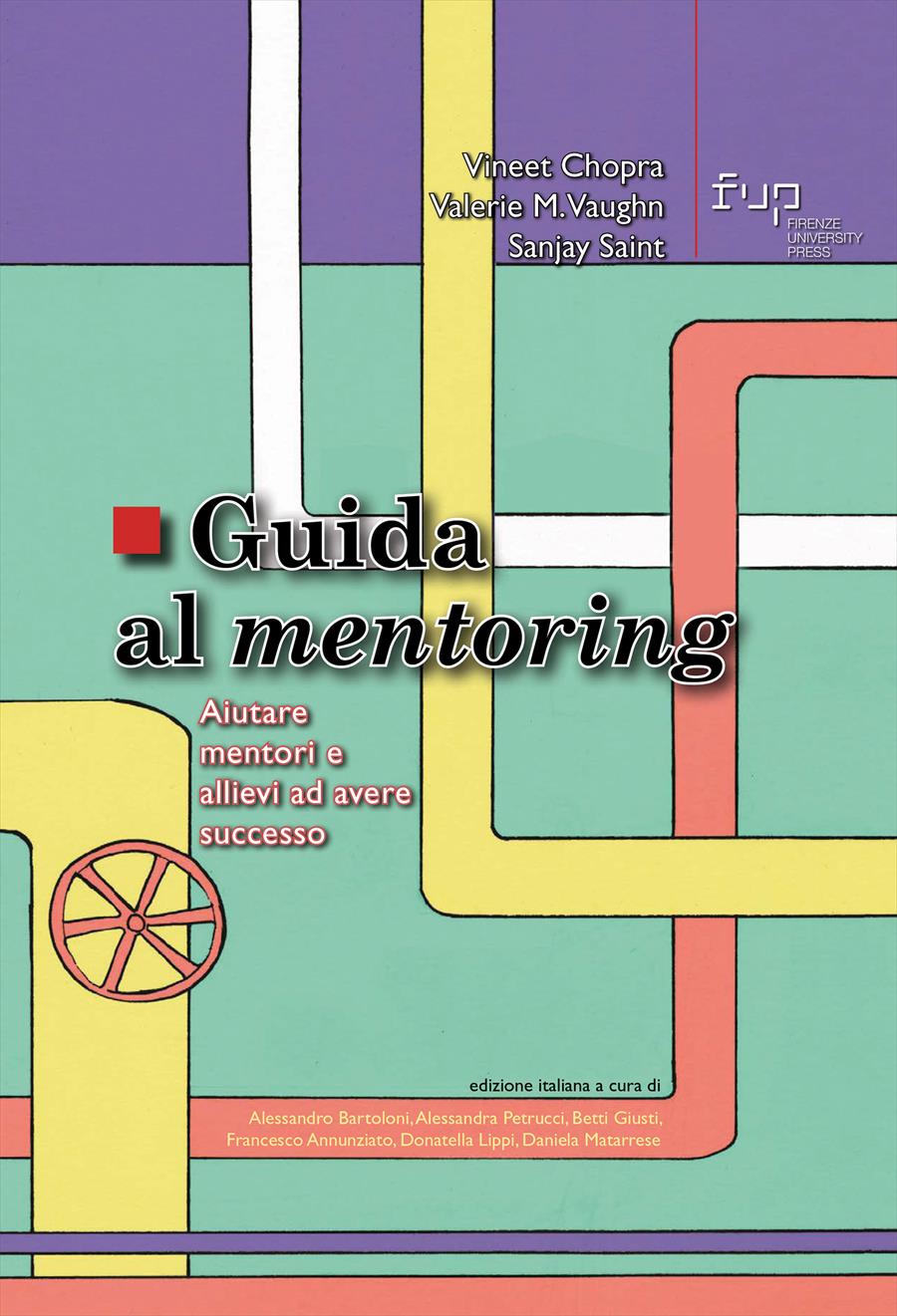Il capitalismo è ancora progressivo?
- Cosimo Perrotta,
This book explains the nature of capitalism both as a production system and as a historical process. Capitalism has superseded the systems based on rent and privileges, has freed up enterprise, brought in competition, set merit above corporative relations and patronage; has created a steady increase in wealth. The process has generated the development of the middle classes, a critical culture civil rights and democracy. However, the pursuit of profit has always tended to op-press the weaker categories and rob the less advanced economies. These two contrary trends cannot coexist indefinitely. Today the essential clash is between welfare for all and neoliberalism, based on increasing inequalities, rising financial rents and the exploitation of workers.
- Keywords:
- capitalism,
- economic freedom,
- accumulation,
- wages,
- middle classes,
- inequality,
- DOI: 10.36253/978-88-5518-208-9
- Series: Studi e saggi
- Scientific Board: Consiglio Editoriale FUP 2019-2021
- Language: Italian
- Subjects: Political Philosophy Economic History
University of Salento, Italy - ORCID: 0000-0003-0150-8765
- Agarwala Amar Narain – Singh Sampat Pal (eds.) (1958), The Economics of Underdevelopment, Oxford, Oxford University Press, 1963.
- Aglietta Michel (2014), Europe. Sortir de la crise et inventer l’avenir, Paris, Michalon.
- Alacevich Michele (2007), Le origini della Banca Mondiale, Milano, Bruno Mondadori.
- Albarenga Pablo (2017), Where did Uruguay’s indigenous population go?, «El País», 10 Nov.
- Amnesty International (2018), Report 2017/18, online.
- Apel Holger (2015), Income inequality in the U.S. from 1950 to 2010, «Real-World Economics Rev.», n. 72.
- Arghiri Emmanuel (1969), L’échange inégal, Paris, Maspero, 1979.
- Aristotele (2019), Etica Nicomachea, Segni Bernardo (trad.), Sinapsi economica (StreetLib), ebook.
- Aristotele (1986), Politica, Laurenti Renato (a cura di), Roma-Bari, Laterza.
- Arlacchi Pino (2018), I padroni della finanza mondiale, Milano, Chiare lettere.
- Atkinson Anthony B. (2015), Inequality, Cambridge, MA – London, Harvard University Press.
- Arrieta Ibarra Imanol et al. (2017), Should We Treat Data as Labor? Moving Beyond ‘Free’, «American Economic Association Papers & Proceedings», Vol. 1, No. 1, online.
- Bacon Robert – Eltis Walter (1976), Britain’s Economic Problem: Too Few Producers, London, Macmillan.
- Bairoch Paul (1997), Storia economica e sociale del mondo. Vittorie e insuccessi dal XVI secolo a oggi, trad. di Victoires et déboires. Histoire économique et sociale du monde du XVIe siècle à nos jours, Torino, Einaudi, 1999.
- Baker Dean (2016), Rigged: How Globalization and the Rules of the Modern Economy Were Structured to Make the Rich Richer, Washington, D.C, Center for Economic and Policy Research.
- Balogh Thomas (1960), Investimenti all’interno e investimenti all’estero, in Balogh Thomas, Una società di ineguali, trad. di Unequal Partners, Torino, Einaudi, 1967: 220-235.
- Banfield Edward C. (1958), Basi morali di una società arretrata, trad. dall’inglese, Bologna, il Mulino, 2006.
- Baran Paul – Sweezy Paul (1966), Monopoly Capitalism, New York – London, Modern Reader, 1968, online: scribd.com.
- Barton John (1817) Observations on the circumstances which influence the condition of the labouring classes of society 1817, Baltimore, Johns Hopkins University, 1934.
- Bastiat Fredéric (1850), Harmonies économiques, vol. VI, in Bastiat Fredéric, Oeuvres complètes, Rideau François-René (éd. par), Online: bastiat.org.
- Bayle Pierre (1704), Continuation des pensées diverses, in Bayle Pierre, Oeuvres diverses, vol. 3, réimpr., Hildesheim, Olms, 1966.
- Beccaria Cesare (1764), Dei delitti e delle pene, Fabietti Renato (a cura di), Milano, Mursia, 1973.
- Bell Daniel (1973), The Coming of Post-Industrial Society, New York, Basic Books.
- Benchmarking Working Europe (2019), online, Brussels, European Trade Union Institute.
- Beuret Nicholas (2019), Emissions inequality – a gulf between global rich and poor, «Social Europe», April 10.
- Bevilacqua Piero (1996), Latifondo, voce di Enciclopedia delle Scienze sociali, vol. V, Roma, Istituto dell’Enciclopedia Italiana.
- Biasco Salvatore (2019), Il futuro dell’ordine mondiale neo-liberista tra trasformazione e resilienza, mimeo.
- Bichler Shimshon – Nitzan Jonathan (2015), Capital accumulation: fiction and reality, «Real-World Economics Review», No. 72: 47-68.
- Boianovsky Mauro (2019a), Reacting to Samuelson: Early Development Economics and the Factor-Price Equalization Theorem, «CHOPE Working Paper», No. 11.
- Boianovsky Mauro, (2019b), Arthur Lewis and the Classical Foundations of Development Economics, in «Including. A Symposium on 50 Years of the Union for Radical Political Economics», online.
- Bold Tessa E. – Molina Safir A. (2017), Clientelism in the Public Sector, «Background Paper for World Development Report 2017», online.
- Bonciani Barbara (2017), Rimesse dei migranti e processi di sviluppo, Milano, Franco Angeli.
- Borsa Giorgio (1977), La nascita del mondo moderno in Asia orientale, Milano, Rizzoli.
- Bracciolini Poggio (1428-29), L’avarizia, trad. dal latino, in Garin Eugenio (a cura di), Prosatori latini del Quattrocento, Milano-Napoli, Ricciardi, 1952: 248-301.
- Brancovic Slobodan (1959), Il problema dei paesi sottosviluppati, Milano, Feltrinelli.
- Braudel Fernand (1977), La dinamica del capitalismo, trad. di After Thoughts on Material Civilization and Capitalism, Bologna, il Mulino, 1977.
- Brentano Lujo (1923), Le origini del capitalismo, trad. dal tedesco, Firenze, Sansoni, 1968.
- Breuer Stefan (1994), Imperi, voce di Enciclopedia delle Scienze sociali, vol. IV, Roma, Istituto dell’Enciclopedia Italiana.
- Calchi Novati Gian Paolo – Valsecchi Pierluigi (2016), Africa: la storia ritrovata, Roma, Carocci.
- Cantillon Richard (1730), Essai sur la nature du commerce en général, testo inglese a fronte, London, Macmillan, 1931.
- Castronovo Valerio (2011), Il capitalismo ibrido, Roma-Bari, Laterza.
- Cavalli Alessandro (1974), Le origini del capitalismo, Torino, Loescher.
- Cesa Marco (1994), Genocidio, voce di Enciclopedia delle Scienze sociali, vol. IV, Roma, Istituto dell’Enciclopedia Italiana.
- Césaire Aimé (1955), Discours sur le colonialisme, Paris, Présence Africaine, 2004.
- Chief Roy Crazy Horse (2002), The North American Genocide, Washington, Powathan Press.
- Club of Rome (1972), The Limits to Growth, Meadows H. Donella et al. (ed. by), New York, Universe Books.
- Cook Eli (2018), The great marginalization: why twentieth century economists neglected inequality, «Real World Economics Review», No. 83, March: 20-34.
- Corm Georges (1993), Il nuovo disordine economico mondiale, trad. dal francese, Torino, Bollati Boringhieri, 1994.
- Coulter Steve (2019), Restoring trust in Europe – wage rises and workplace democracy, «Social Europe», 27th March.
- Credit Suisse (2019), Global Wealth Report, online.
- Cutrona Santina (2012), Riforme e controriforme, in Perrotta – Sunna (2012): 91-100.
- Danovaro Roberto – Gallegati Mauro (2019), Condominio Terra, Firenze-Milano, Giunti.
- Dauderstädt Michael (2019), Tackling poverty and inequality in Europe, «Social Europe», 15th Jan.
- Davanzati Bernardo (1581), Notizia de’ cambi, in Carrero L. (a cura di), Notizie mercantili delle monete e de’ cambi, Venezia, Gondoliere, 1840.
- Deaton Angus (2013), The Great Escape. Health, Wealth and the Origins of Inequality, Princeton-Oxford, Princeton University Press.
- Defoe Daniel (1704), Giving Alms no Charity, in McCulloch (1859a): 27-59.
- Defoe Daniel (1728), Plan of the English Commerce. Being a Compleat Prospect of the Trade of This Nation, As Well the Home Trade As the Foreign, reprint New York, Kelley, 1967.
- Degl’Innocenti Maurizio (a cura di) (1988), Il movimento cooperativo nella storia d’Europa, Milano, F. Angeli.
- Delors Jacques et al. (1993), Crescita, competitività, occupazione. Il Libro bianco, Bruxelles – Lussemburgo, Commissione delle Comunità Europee.
- Delrio Walter – Lenton Diana – Musante Marcelo – Nagy Mariano – Papazian Alexis – Pérez Pilar (2010), Discussing Indigenous Genocide in Argentina: Past, Present, and Consequences of Argentinean State Policies toward Native Peoples, «Genocide Studies and Prevention», 5, 2: 138-159.
- Donou-Adonsou Ficawoyi (2018), On the importance of Chinese investment in Africa, «Review of Development Finance», 8: 63-73, online: ScienceDirect.com
- Dopsch Alfons (1930), Economia naturale ed economia monetaria nella storia universale, trad. dal tedesco, Firenze, Sansoni, 1967.
- Dumoulin Charles (1546), Tractatus contractuum et usurarum, trans. into English, partly in Monroe Arthur (ed.), Early Economic Thought (1924), Cambridge (Mass.), Harvard University Press, 1927.
- Dunoyer Charles (1830), Nouveau traité d’économie sociale, ensuite vol. 2 de Dunoyer, De la liberté du travail, 2 voll., Paris, Guillaumin, 1845.
- Eden Sir Frederic (1797), The State of the Poor. A History of the Labour Classes in England, from the Conquest to the Present Period […], 3 vols., London, J. Davies.
- Ernst Ekkehard (2019), Big Data and its enclosure of the commons, «Social Europe», 12th June.
- Eurofound (2018), Societal change and trust in institutions, Luxembourg, European Union.
- Eurofound (2019), Energy scenario: Employment implications of the Paris Climate Agreement, Luxembourg, European Union.
- European Parliament – The Green-EFA-PAN (2017), Alternatives to herbicide use in weed management. The case of glyphosate, online.
- Evans John (2019), Inequality and unions Brexit, Trump and ‘yellow vests’, «Social Europe», 23 Jan.
- FAO (2019) Food and Agricultural Organization, The state of food security and nutrition in the world, online www.fao.org/
- Ferguson Adam (1767), Saggio sulla storia della società civile, trad. dall’inglese, Firenze, Vallecchi, 1973.
- Finley Moses (1980), Schiavitù antica e ideologie moderne, trad. dall’inglese, Roma-Bari, Laterza, 1981.
- Fortrey Samuel (1663), England’s lnterest and lmprovement, in McCulloch (1856): 211-249.
- Franchi Giulia – Manes Luca (2016), Che cosa c’è da nascondere nella Valle dell’Omo, Re:Common, ebook.
- Franchi Massimo (2019), Il neo-schiavismo nelle campagne. Intervista a Francesco Carchedi, «Diritti globali», 18 febbraio.
- Franzini Maurizio – Pianta Mario (2016), Disuguaglianze, Roma-Bari, Laterza, ebook.
- Funke Manuel – Schularick Moritz – Trebesch Christoph (2016), Going to extremes: Politics after financial crises, 1870-2014, «European Economic Review», Sept.: 227-260.
- Furniss Edgar (1920), The Position of the Laborer in a System of Nationalism, reprint New York, Delley, 1965.
- Furtado Celso [1961], Teoria dello sviluppo economico, trad. dall’ediz. francese, Bari, Laterza, 1972.
- Galbraith James (2019), A global macroeconomics – yes, macroeconomics, dammit – of inequality and income distribution, «Review of Keynesian Economics», Spring: 1-5.
- Galbraith John Kenneth (1967), The New Industrial State, Princeton University Press, 2105, online.
- Galgóczi Béla (ed.) (2019), Towards a just transition: coal, cars and the world of work, Brussels: ETUI (European Trade Union), online.
- Galiani Ferdinando (1751), Della moneta, in Custodi Pietro (a cura di), Scrittori classici italiani di economia politica, (1803-16), parte Moderna, voll. 3 e 4, rist. Roma, Bizzarri, 1965-69.
- Gallagher Kevin – Kozul-Wright Richard [2019], A New Multilateralism for Shared Prosperity. Geneva Principles for a Global Green New Deal, UNCTAD & Global Dev. Policy Center (Boston University), online.
- Gallegati Mauro (2015), The Economy of the Hamster, World Economic Association, eBook.
- Gallino Luciano (2013), Il colpo di stato di banche e governi, Torino, Einaudi.
- Genovese Eugene (1965), L’economia politica della schiavitù, trad. dall’inglese, Torino, Einaudi, 1972.
- Gerolamo (Jeronimus) Epistulae, in Patrologiae Latinae tomus CXX, par J. P. Migne, Turnholti (Turnholt) (Belgique), sans date.
- Ghosh Jayati (2017), 150 years of ‘Das Kapital’: How relevant is Marx today?, «Real-World Economics Review Blog», August 24.
- Ghosh Jayati (2019), The exploitation time bomb, «Sociale Europe», 18 July.
- Gilboy Elizabeth (1936), The Cost of Living and real Wages in Eighteenth Century England, «Review of Economics and Statistics», Aug.: 134-143.
- Gobineau, Joseph-Arthur de (1853-55), Essai sur l’inégalité des races humaines, 4 vol., Paris, Didot, (2me éd.), 1884, online.
- Goodwin Neva (2018), There is more than one economy, «Real-World Economics Review», 84: 16-35.
- Grillotti M. Gemma – De Felice Pierluigi (a cura di) (2019), I predatori della terra, 2a ediz. Milano, F. Angeli.
- Guerrieri Paolo (2012), PAC (Politica Agricola Comune), voce di Economia e Finanza, vol. II, Roma, Istituto dell’Enciclopedia Italiana.
- Hansen Alvin (1941), Fiscal Policy and Business Cycle, London, Allen & Unwin.
- Harman Kristyn (2018), Explainer: the evidence for the Tasmanian genocide, «The Conversation», 17 Jan.
- Haskel Jonathan – Westlake Stian (2018), Capitalism without Capital, Princeton – Oxford, Princeton University Press.
- Heckscher Eli (1931), Mercantilism, London, Allen & Unwin – New York, Macmillan, trans. from Swedish, 2a ed., 1955.
- Hetherington Peter (2019), So 1% of the people own half of England. Inheritance tax reform could fix that, «The Guardian», 18 April, online.
- Hickel Jason (2019), Degrowth: a theory of radical abundance, «Real-World Economics Rev.», 87: 54-68.
- Hilferding Rudolf (1910), Il capitale finanziario, trad. dal tedesco, Milano, Feltrinelli, 1960.
- Hirsch Fred (1976), Social Limits to Growth, London, Routledge, 1978.
- Hirschman Albert (1958), The Strategy of Economic Development, New York – London, Norton.
- Hirschman Albert (1977), Le passioni e gli interessi, trad. dall’inglese, Milano, Feltrinelli, 1979.
- Hobson John A. (1894), The Evolution of Modern Capitalism, online: Internet Archive.
- Hodgson Geoffrey M. (1999), Economics and Utopia, New York – Abingdon, Routledge.
- Holland Stuart (2019), Where the ‘Piketty plan’ is mistaken, «Social Europe», 28th Febr.
- Hudson Michael (2015), Finance as Warfare, World Economic Association, e-book.
- Hudson Pat (1997), Rivoluzione industriale, voce di Enciclopedia delle scienze sociali, Roma, Istituto dell’Enciclopedia Italiana, vol. VII: 487-501.
- Hume David (1742), Of the Middle Station of Life, in Hume David [1882-86], vol. 4: 375-380.
- Hume David (1752), Of Commerce, in Hume David [1882-86], vol 3: 287-299.
- Hume David [1882-86], Essays Moral, Political and Literary, reprint Aalen, Scientia, 1964, vols. 3 & 4, in Hume David, The Philosophical Works, Green T. H. – Grose T. H. (ed.), London.
- iASES (independent Annual Sustainable Economy Survey) (2019) The Imperative of Sustainability, online.
- Iversen Torben – Soskice David (2019), Democracy and Prosperity, Princeton – Oxford, Princeton University Press.
- Janssen Theodore (1713), General Maxims in Trade, particularly applied to the Commerce between Great Britain and France, in Janssen Theodore, The British Merchant: A Collection of Papers Relating to the Trade and Commerce of Great-Britain and Ireland (1713, I: 1-21).
- Kastrop Christiand – Ponattu Dominic (2018), Why Weak Competition Can Increase Inequality in Europe, «Social Europe», 18/12.
- Kautsky Karl (1902), Teorie della crisi, trad. dal tedesco, parte in Colletti Lucio – Napoleoni Claudio (a cura di), Il futuro del capitalismo. Crollo o sviluppo?, Bari, Laterza, 1970: 271-296.
- Keynes John Maynard (1930), Economic possibilities for our grandchildren, in Essays in Persuasion, New York, Norton, 1963: 358-373, online (yale.edu).
- Keynes John Maynard (1936), The General Theory of Employment, Interest and Money, London, Macmillan, 1973.
- Kindleberger Charles (1990), Leggi economiche e storia dell’economia, trad. dall’ingl., Roma-Bari, Laterza.
- Komlos John (2018), Employment in a just economy, «Real-World Economics Review», no. 83: 87-98.
- Koo Richard (2016), The other half of macroeconomics and the three stages of economic development, «Real-World Economics Review», no. 75, June: 2-48.
- Kuznets Simon (1966), Modern Economic Growth, New Haven CT, Yale University Press.
- Leogrande Alessandro (2008), Uomini e caporali, Milano, Mondadori.
- Leonhardt David (2019), The Rich Really Do Pay Lower Taxes Than You, «New York Times», Oct. 6, 2019.
- Lewis Arthur W. (1954), Economic Development with Unlimited Supply of Labour, The Manchester School, in Agarwala – Singh (1958): 400-449.
- Liberti Stefano (2011), Land grabbing, Roma, Minimum Fax.
- Liberti Stefano (2016), I signori del cibo, Roma, Minimum Fax.
- Lindert Peter (2016), Real and Imagined Threats to the Welfare State, online working paper (11 Oct.).
- Lippit Victor (2005), Capitalism, London-New York, Routledge.
- List Friedrich (1841), The National System of Political Economy, trad. dal tedesco, London, Longmans, Green and co., 1909, online The library of Economics and Liberty.
- Locke John (1690), Two Treatises on Government, in Locke John, Works, reprint Aalen, Scientia, 1963, vol. 5.
- Lombroso Cesare (1876), L’uomo delinquente, 5a ed. 1897, Milano, Bompiani, 2013.
- Loria Achille (1889), Analisi della proprietà capitalista, 2 voll., in Loria Achille, Opere, vol 1, Torino, UTET, 1957: 1-656; vol. 2, Torino, Bocca, online: openbess da Università di Torino.
- Luxemburg Rosa (1913), The Accumulation of Capital, trans. from German, London, Routledge & Kegan Paul, 1951, online: Marxists Archive.
- Luxemburg Rosa [1915], An Anti-Critique, trans. from German, first ed. 1921, online: Marxists Archive.
- Madi Maria Alejandra (2015), What is the informal economy?, «WEA (World Economic Association) Pedagogy Blog», August 8.
- Madi Maria Alejandra (2017), Global business models and labour challenges, in Lima P. Gerson – Madi Maria Alejandra (eds.), Capital and Justice, Bristol UK, World Economic Association: 153-173.
- Malthus Thomas Robert (1798), An Essay on the Principle of Population, London, J. Johnson.
- Malthus, Thomas Robert (1820) Principles of Political Economy, 2nd ed. London, Pickering, 1836, online Google from Bodleyan Library, Oxford.
- Mandeville Bernard (1705), The Grumbling Hive, in Mandeville Bernard, The Fable of the Bees (1705-29), Oxford, Clarendon, 1924.
- Manetti Giannozzo (1452), Della dignità e dell’eccellenza dell’uomo, IV, in Garin Eugenio (a cura di), Prosatori latini del Quattrocento, Milano-Napoli, Ricciardi, 1952.
- Mariqueo, Reynaldo – Calbucura Jorge (2002), The Mapuche nation, www.mapuche-nation.org, 2nd Sept.
- Marx Karl (1973), Grundrisse, trans. from German, Harmondsworth, Penguin, 1857-61.
- Marx Karl (1867), Capital I, trans. from German, Moscow, Progress Publishers, www.marxists.org/archive.
- Marx Karl [1865-70], Capital II, trans. from German, first ed. 1885, Chicago, Kerr, online: Library of Liberty, 1909.
- Marx Karl [1863-83], Capital III, trans. from German, first ed. 1894, New York, International Publishers, online: marxists.org, 1999.
- Mazzucato Mariana (2013), Lo Stato innovatore (The Entrepreneurial State), Roma-Bari, Laterza.
- Mazzucato Mariana (2018), The Value of Everything, Allen Lane – Penguin.
- Mazzucato Mariana (2019), Preventing digital feudalism, «Social Europe», 9th October.
- Mazzucato Mariana – Jacobs Michael (a cura di) (2016), Ripensare il capitalismo, trad. dall’inglese, Roma-Bari, Laterza.
- McCulloch John Ramsay (ed.) (1856), Early English Tracts on Commerce, London, printed for the Political Economy Club.
- McCulloch John Ramsay (ed.) (1859a), A Select Collection of Scarce and Valuable Economical Tracts: From the Originals of Defoe, Elking, Franklin, Turgot, Anderson, Schomberg, Townsend, Burke, Bell, and Others, London (Lord Overstone).
- McCulloch John Ramsay (ed.) (1859b), A Select Collection of Scarce and Valuable Tracts on Commerce: from the Originals of Evelyn, Defoe, Richardson, Tucker, Temple, and Others, London (Lord Overstone).
- Meier Gerald M. – Baldwin Robert E. (1957), Economic Development: Theory, History, Policy, New York, Wiley.
- Milanovic Branko (2017), Inevitability of the need for economic growth —the Nth time, «Globalinequality», blog, July 12.
- Mill James (1808), Commerce Defended, London, Baldwin, online: Library of Liberty.
- Mill John Stuart (1844), Essays on Some Unsettled Questions of Political Economy, 2nd ed. 1874, London, Longmans etc., online: Library of Economics & Liberty.
- Mill John Stuart (1848), Principles of Political Economy, 7th ed. London, Longmans & Green, 1909, online: Library of Economics & Liberty.
- Mincone Alessandra (2019), Congo. L’oro nero non è un gioco per i bambini minatori, «NENA (Near East News Agency) News», March 1st.
- Moe Espen (2007), Governance, Growth and Global Leadership, London-New York, Routledge, 2016.
- Mokyr Joel (2017), The Market for Ideas and the Great Enrichment, presented at the EHES meeting, Antwerp, May, online.
- Mollat Michel (1978), Les pauvres au Moyen Age, Paris, Hachette.
- Montaigne Michel de (1580), Essays. Livre 1, Paris, GF-Flammarion, 1969.
- Montesquieu Charles (1748), De l’Esprit des lois, in Montesquieu Charles, Oeuvres complètes, Paris, Didot, 1838.
- Moore Charles (2019), Plastic pollution, Encyclopaedia Britannica, online.
- Morgan Jamie – Fullbrook Edward (2019), Introduction: Economics and civilization in ecological crisis, «Real-World Economics Review», 87: 2-8.
- Morroni Mario (2018), What Is the Truth About the Great Recession and Increasing Inequality?, Springer.
- Moyo Dambisa (2009), La carità che uccide, trad. dall’inglese, Milano, Rizzoli, 2010.
- Moyo Dambisa (2012), Winner take all, New York, Basic Books.
- Mun Thomas [1623], England’s Treasure by Forraign Trade, or the Ballance of our Forraign Trade is the Rule of our Treasure, 1st ed. 1664. Reprint Fairfield (NJ), Kelley.
- Myrdal Gunnar (1957), Teoria economica e paesi sottosviluppati, trad. dall’inglese, Milano, Feltrinelli, 1966.
- Napoleoni Loretta (2008), Economia canaglia (Rogue Economics), Milano, il Saggiatore, 2008.
- Neu Dean – Therrien R. (2003), Accounting for Genocide: Canada’s Bureaucratic Assault on Aboriginal People, Winnipeg MB, Fernwood Publishing – Zed Books.
- Nicole Pierre (1675), La carità e l’amor proprio, trad. dal francese, Brescia, Morcelliana, 2005.
- Nurkse Ragnar (1951), La formazione del capitale nei paesi sottosviluppati, trad. dall’inglese, Torino, Einaudi, 1965.
- O’Connor James (1973), La crisi fiscale dello stato, trad. dall’inglese, Torino, Einaudi, 1979.
- Olivi Pietro di Giovanni (1980), De usuris, in Todeschini Giacomo (a cura di), Un trattato di economia politica francescana. Il De emptionibus et venditionibus, de usuris, de restitutionibus di Pietro di Giovanni Olivi, Roma, Ist. Storico Ital. per il Medioevo.
- Ostler Jeffrey (2015), Genocide and American Indian History, Oxford research Encyclopaedia. American History; online, scaricato 14 marzo 2019.
- OWD (Our World in Data), diretto da Max Roser, online: https://ourworldindata.org/.
- Oxfam (2019). Oxfam Briefing paper, genn., versione italiana, online: www.oxfam.it.
- Palley Thomas (2018), Three Globalizations, not two, FMM Working paper, No. 18, online, Hans-Böckler-Stiftung.
- PAN Europe (Pesticide Action Network Europe) (2017), Alternative methods in weed management to glyphosate and other herbicides, Brussels, online.
- Pasinetti Luigi (1981), Dinamica strutturale e sviluppo economico, trad. di Structural Change and Economic Growth), Torino, UTET, 1984.
- Patten Simon (1896), The Theory of Social Forces, Philadelphia, American Academy of Political & SocialScience, online: Internet Archive.
- Perdices Luis – Ramos Gorostiza José L. (2017), La economía política de la esclavitud: los argumentos económicos del debate abolicionista español del siglo XIX, «GeoCrítica», revista electrónica, XXI; 567: 1-42.
- Peri Giovanni Domenico (1638) Il negoziante, Venezia, Hertz, 1697.
- Perrotta Cosimo (2004), Consumption as an Investment, London-New York, Routledge.
- Perrotta Cosimo (2016), The brilliant fifties: International trade as a cause of underdevelopment, in Sunna – Gualerzi (2016): 51-70.
- Perrotta Cosimo (2018), Unproductive Labour in Political Economy, London-New York, Routledge.
- Perrotta Cosimo – Sunna Claudia (a cura di) (2012), L’arretratezza del Mezzogiorno. Le idee, l’economia, la storia, Milano, Bruno Mondadori.
- Pettersson Karin (2019), Can data-labour unions break the monopoly capture of data?, «Social Europe», 1st April.
- [Petyt, William] (1680) Britannia Languens or A Discourse of Trade, in McCulloch (1856): 275-504.
- Piketty Thomas (2014), Capital in the Twenty-First Century, trans. from French and updated, Cambridge MA – London, Harvard University Press.
- Piketty Thomas – Vauchez Antoine (2018), Manifesto for the Democratization of Europe, Social Europe, Dec. 10th.
- Pinker Steven (2011), The Better Angels of Our Nature. A History of violence and Humanity, Penguin.
- Pirenne Henri (1933), Storia economica e sociale del medioevo, trad. dal francese, Milano, Garzanti, 1967.
- Pisanelli Simona (2018), Condorcet et Adam Smith, Paris, Garnier.
- Piuz Anne-Marie (1997), Le economie tradizionali in Europa, in Bairoch (1997): 77-122.
- Plehwe Dieter et al. (eds.) (2019), Austerity. 12 Myths Exposed, Social Europe publisher, online.
- Polanyi Karl (1944), The Great Transformation, Boston, Beacon, 2001, online.
- Polanyi Karl et al. (1957), Traffici e mercati negli antichi imperi, trad. dall’inglese, Torino, Einaudi, 1978.
- Pollin Robert (2012), Back to Full Employment, Cambridge MA, MIT Press.
- Pozzi Anna (2016), Mercanti di schiavi, Cinisello Balsamo (Milano), Ed. San Paolo.
- Prebisch Raúl (1949), El desarrollo económico de la América Latina y algunos de sus principales problemas, in «Desarrollo económico», 1986, no. 103: 479-502.
- Quesnay François (1766), Sur les travaux des artisans. Second dialogue, in F. Quesnay et la Physiocratie, Paris, INED, vol. 2, 1958: 885-912.
- Raworth Kate (2017), Doughnut Economics, London, Random House, 2018.
- Rensing Brenden (2011), Genocide of Native Americans, in Totten Samuel – Hitchcock Robert K. (eds.), Genocide of Indigenous Peoples, vol. 8, New Brunswick – London, Transaction.
- Ricardo David (1820), Notes on Malthus’“Principles of Political Economy”, Hollander Jacob H. – Gregory T. E. (ed. by), Baltimore, Johns Hopkins Press.
- Ricardo David (1821), Principles of Political Economy and Taxation, London, Murray, online: Library of Economics & Liberty.
- Rifkin Jeremy (2014), La società a costo marginale zero, trad. dall’inglese, Milano, Mondadori, 2014.
- Rizzello Salvatore (1997), The Economics of the Mind, trans. from Italian, Cheltenham, Edward Elgar Publishing, 1999.
- Roncaglia Alessandro (2001), The Wealth of Ideas. A History of Economic Thought, trad. dall’italiano, Cambridge, Cambridge University Press, 2006.
- Roncaglia Alessandro (2005), Il mito della mano invisibile, Roma-Bari, Laterza.
- Roncaglia, Alessandro (2019) L’età della disgregazione. Storia del pensiero economico contemporaneo, Bari-Roma, Laterza, ebook.
- Rosdolsky Roman (1968), The Making of Marx’s ‘Capital’, trad. dal tedesco, London, Pluto Press, 1977, online: gruppegrundrisse.files.wordpress.com.
- Rosenstein-Rodan N. Paul (1943), Problems of Industrialization of Eastern and South-Eastern Europe, «Economic Journal», in Agarwala-Singh (1958): 245-255.
- Rossi Ernesto (1956), Aria fritta, Bari, Laterza.
- Rostow Walt W. (1960), The Stages of Economic Growth, Cambridge, Cambridge University Press, 1990.
- Ruccio David (2017), Global Rentier Capitalism, «World Econ. Assoc. Commentaries», Dec.: 10-13.
- Ruccio David – Morgan Jamie (2018), Capital and class: inequality after the crash, «Real-World Economics Review», No. 85, Sept. 2018: 15-24.
- Salazar-Xirinachs José Manuel – Dussel Peters Enrique – Armony Ariel (ed.) (2019), Efectos de China en la cantidad y calidad del empleo en América Latina, Organización Internacional del Trabajo, online.
- Salento Angelo – Masino Giovanni (2013), La fabbrica della crisi, Roma, Carocci.
- Samuelson Paul A. (1948), International Trade and the Equalisation of Factor Prices, «The Economic Journal», Vol. 58, No. 230 (Jun. 1948): 163-184, from JSTOR.
- Sapelli Giulio (2018), Oltre il capitalismo, Milano, Guerini.
- Say Jean-Baptiste (1803), Traité d’économie politique, 6me ed. Paris, Guillaumin, 1841, online: Inst. Coppet.
- Say Jean-Baptiste (1828-29) Cours complet d’économie politique pratique, 2me ed., Paris, Guillaumin, 1840, 2 tomes.
- Schefold Bertram (2019), The Significance of Economic Knowledge for Welfare and Economic Growth in History, in Frangipane – Pöttinger – Schefold (eds.), Ancient economies in comparative perspective, Springer, forthcoming.
- Schultz Theodore (1961), Investment in Human Capital, «American Econ. Rev.», March: 1-17.
- Schumpeter Joseph A. (1911), The Theory of Economic Development, trans. from German, Cambridge, Mass., Harvard University Press, 1949.
- Schumpeter Joseph A. (1942), Capitalismo, socialismo, democrazia, trad. dall’inglese, Milano, Comunità, 1964.
- Sekera June (2018), The public economy: understanding government as a producer, «Real-World Economics Review», No. 84: 36-99.
- Sideri Sandro (2010), L’India e gli altri, ISPI (Istituto di Studi di Politica Internazionale), online.
- Simonazzi Annamaria – Celi Giuseppe – Guarascio Dario (2019), Developmental industrial policy for convergence within the European Monetary Union, in Herr Hansjörg – Priewe Jan – Watt Andrew (eds.), Still time to save the euro, Social Europe publisher, Berlin, 2019: 162-183.
- Singer Hans W. (1950), The distribution of gains between investing and borrowing countries, «American Economic Review», vol. 40: 473-485, from JSTOR.
- Sismondi, Charles (1819) Nouveaux principes d’économie politiques, 2me ed. 1827, 2 tomes, Paris, Delaunay, online: I tome: Gallica, BNF; II tome: University of Michigan.
- Sivini Giordano (2016), La fine del capitalismo. Dieci scenari, Trieste, Asterios.
- Smith Adam (1776), Wealth of Nations, Cannan Edwin (ed.), London, Methuen, 1904, online: Library of Economics & Liberty.
- Smith Richard (2015), Green Capitalism. The God that Failed, World Economic Association, online.
- Smith Richard (2017), China’s drivers and planetary ecological collapse, «Real-World Econ. Rev.», n° 82: 2-28.
- Social Europe [2019], The Crisis of Globalisation, di autori vari, online.
- Sombart Werner (1912), Luxury and Capitalism, trans. from German, Ann Arbor, University of Michigan Press, 1967.
- Stanovnik Janez (1964), I paesi in via di sviluppo nell’economia mondiale, trad. dal serbo-croato, Milano, Feltrinelli, 1965.
- Starkey Thomas (1529-30), A Dialogue between Pole and Lupset, London, Royal Historical Society – University College, 1989.
- Steuart James (1767), Principles of Political Oeconomy, 2 vols., Chicago, Chicago University Press, 1966.
- Stiglitz Joseph (2001), Foreword to Polanyi (1944) The Great Transformation, Boston, Beacon, 2001, online.
- Stiglitz Joseph (2013), The Price of Inequality, New York-London, Norton.
- Stiglitz Joseph (2019a), Corporate greed is accelerating climate change. But we can still head off disaster, CNN Business, April 21.
- Stiglitz Joseph (2019b), Corporate tax avoidance: it’s no longer enough to take half measures, «The Guardian», international ed., 7 Oct., online.
- Stiglitz Joseph (2019c), Progressive Capitalism Is Not an Oxymoron, «The New York Times», April 19.
- Stockton Richard (2017), Australia’s Centuries-Long Genocide Against Aboriginal People, «History Science News», online, August 15.
- Stockton Richard (2018), Why Isn’t Belgium’s King Leopold II As Reviled As Hitler Or Stalin?, «History Science News», October 17, online.
- Storrie, Donald (2019), The future of manufacturing. Is it in Europe?, «Social Europe», 11th April.
- Sunna Claudia – Gualerzi Davide (eds.) (2016), Development Economics in the XXI century, Abingdon (UK) New York, Routledge.
- Sunna Claudia – Mosca Manuela (2016), Heterogenesis of ends: Herbert Spencer and the Italian economists, «The European Journal of the History of Economic Thought», March.
- Sustainable Equality (2018), Report of the EU Independent Commission for Sustainable Equality, online.
- Sweezy Paul (1981), Four Lectures on Marxism, New York – London, Monthly Review Press.
- Syll Lars (2019), Nordhaus dangerous gamble for humanity’s future, «Real-World Economics Review Blog», Sept. 21.
- Sylos Labini Paolo (2014), La politica economica del fascismo. La crisi del ‘29, «Moneta e Credito»: 47-54.
- Tanenbaum, Morris (1983a) Automation, entry of The New Encyclopaedia Britannica, 15th ed., vol. 2, 1983: 505-514.
- Tanenbaum, Morris (1983b) Mass Production, entry of The New Encyclopaedia Britannica, 15th ed., vol. 11, 1983: 595-600.
- Tcherneva Pvlina (2015), Trends in US income inequality, «Real-World Economics Review», No. 71, May: 64-74.
- Theodoropoulou Sotiria (2019), Convergence to fair wage growth? Evidence from European Countries on the Link between Productivity and Real Compensation Growth, 1970-2017, «Working Paper», 2019.07, ETUI, online.
- Tinker Hugh R. (1983), Indian Subcontinent, History of the —, entry of The New Encyclopaedia Britannica, 15th ed., vol. 9: 334-430.
- Tommaso d’Aquino (Thomas Aquinas) (1972), Summa theologiae, London, Eyre and New York, McGraw Hill, Secunda secundae (quaestiones 101-122), Latin and English text, vol. 41, 1972.
- Toniolo Giuseppe (1908), Trattato di economia sociale, online: Storiologia.
- Torrens Robert (1819), Mr. Owen’s Plans for Relieving the National Distress, in Torrens Robert, The Economists refuted and Other Early Economic Writings, Groenewegen Peter D. (ed. by), Univeristy of Sydney, 1984.
- Tosi Giuseppe (2009), Bartolomé de Las Casas (Siviglia 1484 - Madrid 1566), «Jura Gentium», online, 2009.
- Trainer Ted – Alexander Samuel (2019), The simpler way: envisioning a sustainable society in an age of limits, «Real-World Economics Review», 87: 247-260.
- Trinchero Héctor H. (2006), The genocide of indigenous peoples in the formation of the Argentine Nation-State, «Journal of Genocide Research», 8, 2: 121-135.
- Tucker Josiah (1750 ca), A Brief Essay on the Advantages and Disadvantages which Respectively Attend France and Great Britain: With Regard to Trade. With Some Proposals for Removing the Principal Disadvantages of Great Britain. In a New Method, in McCulloch (1859b): 309-425.
- Tucker Josiah (1755), Elements of Commerce and Theory of Taxes, in Tucker, A Selection from His Economic and Political Writings, New York, Columbia University Press, 1931.
- Vaggi Gianni (2018), Development, Palgrave – Macmillan, Pivot.
- Valentini Ezio (2019), Structural crisis and robotisation require more Europe, less austerity, «Social Europe», 4th June.
- Van Bavel Bas (2016), The Invisible Hand? How Market Economies have Emerged and Declined since A D 500, Oxford, Oxford University Press.
- Vanhercke Bart – Hailani Dalila – Sabato Sebastiano (eds.) (2018), Social policy in the EU: state of play 2018, Brussels, ETUI-OSE.
- Van Mol Christof – de Valk Helga (2016), Migration and Immigrants in Europe: A Historical and Demographic Perspective, in Garcés-Mascareñas Blanca – Penninx Rinus, Integration Processes and Policies in Europe, Imiscoe, Springer: 31-55.
- Veblen Thorstein (1899), The Theory of the Leisure Class, online: moglen.law.columbia.edu.
- Viñas y Mey Carmelo (1970), Notas sobre primeras materias, capitalismo industrial y inflación en Castilla durante el siglo XVI, «Anuario de Historia Económica y Social», Universidad de Madrid.
- Walk Free (2019), Measurement, Action, Freedom (Eradicate Modern Slavery), Minderoo Foundation, online.
- Walker John (1999), How Big is Global Money Laundering?, «Journal of Money Laundering Control», 3/ 1: 25-37.
- Wallerstein Immanuel (1995), Capitalismo storico e civiltà capitalistica, trad. dall’inglese, Trieste, Asterios, 2000.
- Walras Léon (1874), Éléments d’économie politique pure, Lausanne, L. Corbaz & cie. etc., online: Internet Archive.
- Weber Max (1896), Le cause sociali del tramonto della civiltà antica, in Weber Max, Storia economica e sociale dell’antichità, trad. dal tedesco, Roma, Editori Riuniti, 1981.
- Weber Max (1904-05), The Protestant Ethic and the Spirit of Capitalism, trad. dal tedesco, London-New York, Routledge, 1992.
- Weber Max [1919-20], Storia economica, trad. dal tedesco, Roma, Donzelli, 1997.
- WHO (World Health Organization) online.
- Wicksell Knut (1901), Lectures on Political Economy, trad. dallo svedese, vol. 1, Fairfield, Kelley, 1977; online: Von Mises inst.
- Williams Robert B. (2017), The Privileges of Wealth, London-New York, Routledge.
- Winch Donald (1978), Adam Smith’s Politics, Cambridge, Cambridge University Press.
- World Drug Report (2018), booklet 1, United Nations, online.
- WWF (World Wildlife Fund), Living Planet Report 2018, online.
- Yapp Malcom E. et al. (1983), Ottoman Empire and Turkey, History of the —, entry of The New Encyclopaedia Britannica, 15th ed., vol. 13, 1983: 771-97.
- Zuboff Shoshana (2019), The Age of Surveillance Capitalism, London, Profile Books.
- Zucman Gabriel (2013), The Hidden Wealth of Nations, trans. from French, Chicago-London, University of Chicago Press, 2015.
- Publication Year: 2020
- Pages: 146
- eISBN: 978-88-5518-208-9
- Content License: CC BY 4.0
- © 2020 Author(s)
- Publication Year: 2020
- Pages: 146
- ISBN: 978-88-5518-207-2
- Content License: CC BY 4.0
- © 2020 Author(s)
Bibliographic Information
Book Title
Il capitalismo è ancora progressivo?
Authors
Cosimo Perrotta
Peer Reviewed
Number of Pages
146
Publication Year
2020
Copyright Information
© 2020 Author(s)
Content License
Metadata License
Publisher Name
Firenze University Press
DOI
10.36253/978-88-5518-208-9
ISBN Print
978-88-5518-207-2
eISBN (pdf)
978-88-5518-208-9
eISBN (epub)
978-88-5518-209-6
Series Title
Studi e saggi
Series ISSN
2704-6478
Series E-ISSN
2704-5919
